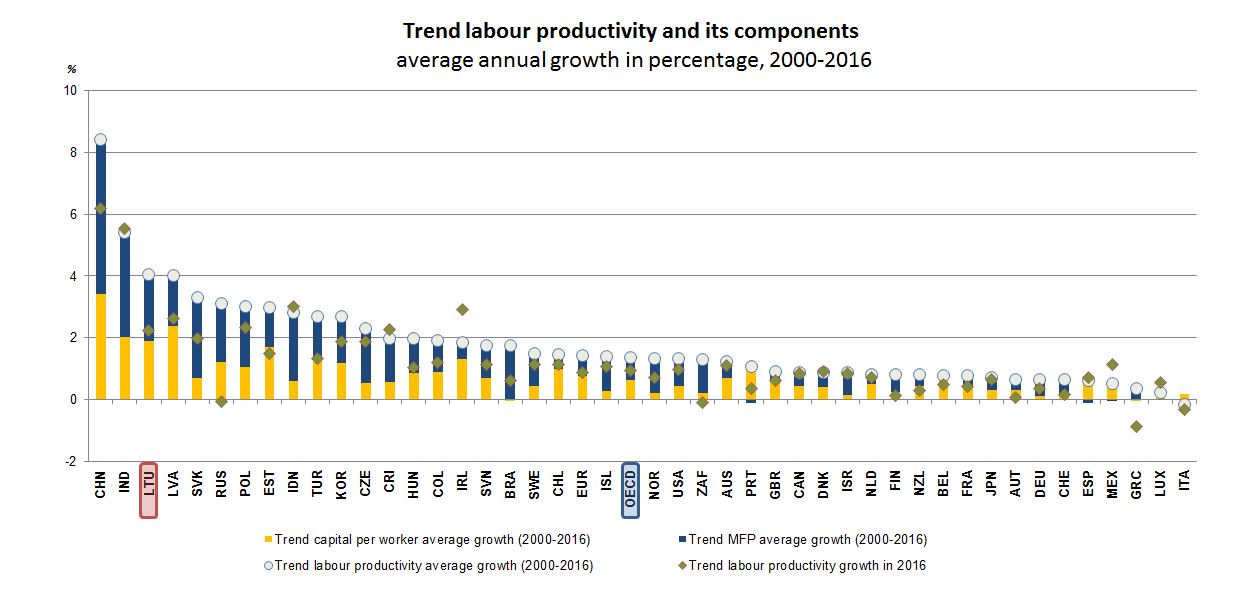Lithuania
 OECD recommendations
OECD recommendations
Productivity growth has slowed in the aftermath of the global financial crisis, even though room for catch-up in terms of level remains. Improvements in the quality of education at all levels and more on-the-job training can better match the skills of people to those needed by firms and ensure that growth is more inclusive. Business innovation would benefit from measures to strengthen the capacity of firms to absorb and implement new ideas.
- Promote new forms of business financing and ensure that innovation policies support young innovative firms.
- Improve the corporate governance of state-owned enterprises.
- Encourage innovation and firm’s absorptive capacity by improving awareness of R&D tax incentives.
- Increase the role of workplace vocational training and cooperation with employers in the education system, especially in the context of vocational education and training programmes.
- Entrepreneurship will be enhanced by reforms to bankruptcy procedures that reduce the time it takes to close a business.
 Data
Data
Source: OECD May 2017 Economic Outlook database.
 Key publications
Key publications
Westmore (2016), “Fostering further productivity convergence in Lithuania”, OECD Economics Department Working Papers, forthcoming.
OECD (2016), Market Openness Review of Lithuania, OECD Publishing, Paris, forthcoming.
OECD (2015), Regulatory Policy Review: Lithuania, OECD Publishing, Paris.
 Productivity - enhancing institutions
Productivity - enhancing institutions
From 2002, Lithuania has had a competition authority (The Competition Council of the Republic of Lithuania).
The Ministry of Economy established “Enterprise Lithuania” in 2009 to support small and medium sized enterprises and encourage Lithuanian exports.
In 2015, a budget monitoring institution was established, located in the National Audit Office of Lithuania.
Related Documents


